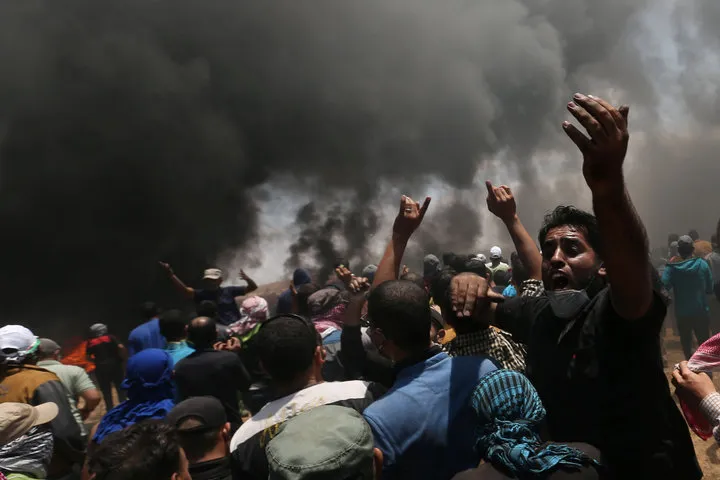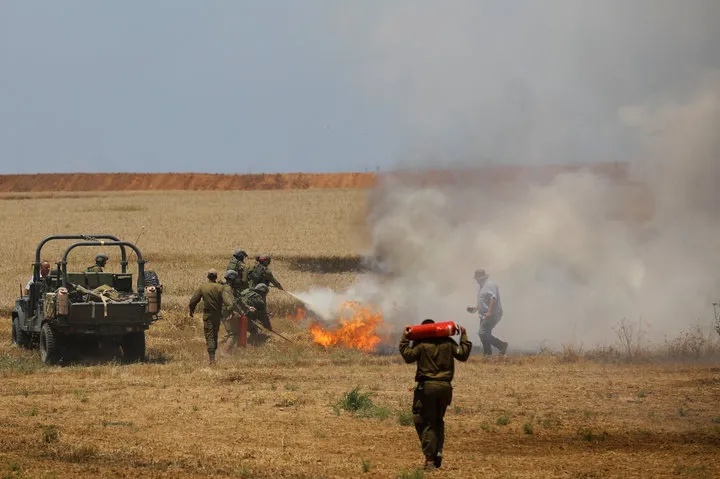WASHINGTON, May 14 (Reuters) - The move of the U.S. Embassy in Israel to Jerusalem, coupled with the killings of dozens of Palestinian protesters on Monday, makes the odds of a U.S.-brokered peace even more remote, analysts said.
“Somewhere between zero and none,” Martin Indyk, a former U.S. special envoy for Israeli-Palestinian negotiations in the Obama administration, said of the chances President Donald Trump might bring the two sides together and broker what he has called the “ultimate deal.”
Israeli troops fatally shot dozens of Palestinian demonstrators on the Gaza border on Monday as the U.S. Embassy formally moved to Jerusalem from Tel Aviv. The embassy move fulfilled a Trump campaign promise but infuriated Palestinians and drew criticism that Washington had undercut its own peace efforts.
Palestinian Health Ministry officials said 58 protesters were killed and 2,700 injured by live gunfire, tear gas or other means. Israeli Prime Minister Benjamin Netanyahu said Israel was acting in self-defense against the coastal enclave’s ruling Hamas group.
“It’s hard to see how any Palestinian leader could go back to an American-sponsored peace process” given the embassy move and the Gaza killings, said Khaled Elgindy, a former adviser to the Palestinian leadership now at Washington’s Brookings Institution think tank.
“If and when the administration puts forward a peace plan, it is most likely DOA (dead on arrival),” he added, saying Trump had done nothing to calm matters. “At a minimum, that would require urging the Israelis to stop using lethal force against unarmed protesters.

BLAMING HAMAS
Rather than calling for restraint by Israel, as both France and Britain did, the United States blamed Hamas, the Palestinian Islamist group.
“Hamas is intentionally and cynically provoking this response,” White House spokesman Raj Shah told reporters, adding the United States did not believe the opening of the embassy or the latest violence would affect its peace plan.
Hamas denied instigating the violence.
Trump has argued that by recognizing Jerusalem as the capital of America’s close ally, he had “taken Jerusalem, the toughest part of the negotiation, off the table” and formalized realities on the ground.
Israel regards all of the city, including the eastern sector it captured in the 1967 Middle East war and annexed in a move  that is not recognized internationally, as its “eternal and indivisible capital.”
that is not recognized internationally, as its “eternal and indivisible capital.”


But it had drawn widespread skepticism even before the latest developments. The Palestinians have boycotted the process since Trump’s Jerusalem announcement in December.
Indyk said the decision “hasn’t advanced peace at all.
“The idea that ... it’s going to convince the Palestinians that now they should come back to the table is a fundamental misrepresentation of what they’ve done,” he added. “They’ve driven the Palestinians away from the table and given them the excuse not to come back.”
A wounded Palestinian demonstrator is evacuated during a protest against U.S. embassy move to Jerusalem and ahead of the 70th